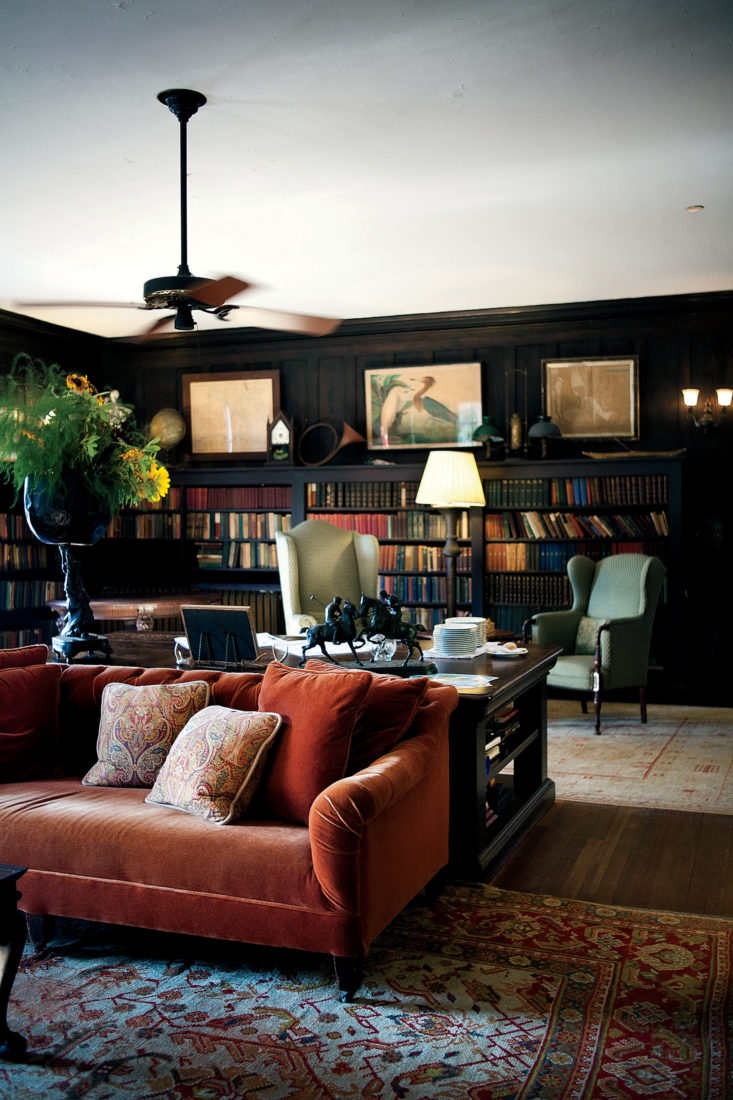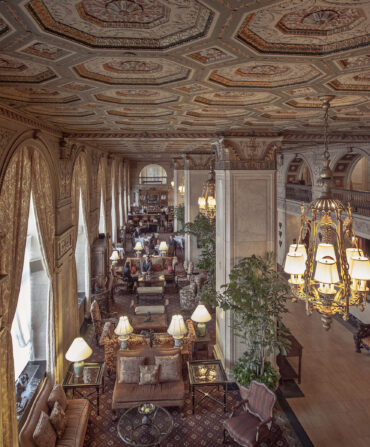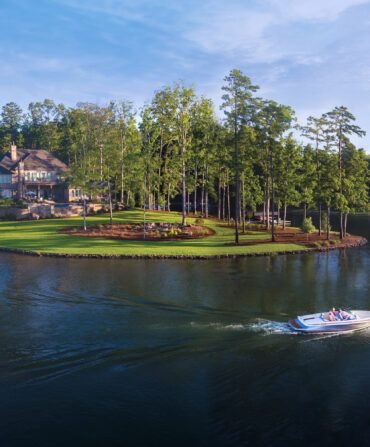There’s no shortage of top-drawer hotels in the South, but for travelers looking for more than a minibar and a Wi-Fi connection, historic homes offer a quieter, quirkier kind of luxury. A growing number of the stateliest spreads in Dixie have opened their doors to overnight guests, and not just in the carriage house or converted stables, but in the main house, too. North Carolina’s sprawling Biltmore Estate, the largest house in the country, is perhaps the best-known example, but from a remote barrier island perch to grand city palaces, other unusual and opulent dwellings offer guests a chance to eat, sleep, and breathe Southern history
Anchuca Mansion
Vicksburg, Mississippi
Backstory: This antebellum estate, built in 1830, takes its name from the Choctaw Indian word for “happy home.” Legend has it that Confederate president Jefferson Davis made a speech from the home’s balcony following his release from federal prison. Davis’s brother lived in the house, which had become a genteel shelter for people wounded or displaced in the Civil War.
What to expect: Located in Vicksburg’s Old Town neighborhood, Anchuca’s grandly columned main house has three antique-filled guest rooms with twelve-foot ceilings; a carriage house provides four additional sleeping quarters, each named for one of second owner Victor Wilson’s daughters: Jennie, Ellen, Emma, and Kate.
Personal touch: Original
ceiling medallions made from marble dust, horsehair, and
molasses still grace the entrance hallway and lady’s parlor.
anchucamansion.com
Duke Mansion
Charlotte, North Carolina
Backstory: James Buchanan Duke bought this Colonial Revival mansion in 1915 as a way to introduce his northern-bred daughter, Doris, to life in the South, and tripled its size to accommodate space for fourteen cars, a car wash, and a gas pump. Some of the biggest VIPs of the past century, including JFK, have visited.
What to expect: Although the mansion has been renovated since Duke’s time, much of the 1920s decor endures. There are twenty guest rooms, including cozy treetop compartments on the third floor, but the family’s former sleeping quarters, complete with sleeping porches, are the standout accommodations.
Personal touch: Duke was
convinced hydroelectrics would save the Carolinas’ struggling economies. You can still see one of the two elaborate water fountains he built in front of the house.
dukemansion.com

Photo: Imke Lass
Hidden Gems
Set on remote Cumberland Island, Greyfield is well situated for beachcombers and explorers.
Greyfield Inn
Cumberland Island, Georgia
Backstory: One of four mansions built here by the Carnegie family in the nineteenth and early twentieth centuries, Greyfield is still family-run. Proprietor Mary Ferguson’s husband, Oliver “Mitty” Ferguson, is a fifth-generation descendant.
What to expect: This barrier island at Georgia’s southern border, roughly twice the size of Manhattan, is a tangle of live oak, Spanish moss, and sand—no beachfront condos, no paved roads. Cars and televisions are rare, and people are far outnumbered by alligators, armadillos, and wild horses. The compound’s ten antique-outfitted bedrooms and two cottages contain original furnishings and heirlooms.
Personal touch: The library holds the Carnegie family’s original book collection, from which guests
are encouraged to borrow.
greyfieldinn.com

Photo: Amy Mikler
Under Herlong Mansion’s Corinthian columns and wide verandas, traces of the original farmhouse remain.
Herlong Mansion
Micanopy, Florida
Backstory: The original pine farmhouse was built in 1845; in 1910, Natalie Herlong, who grew up there, and her wealthy young husband, Zetty, moved in and transformed the existing structure into a sprawling Greek Revival mansion.
What to expect: Located in a sleepy town just outside of Gainesville, Herlong is surrounded by two acres of leafy gardens. There are twelve stylishly appointed accommodations, including seven guest rooms, three suites, and three cottages.
Personal touch: Traces of the old farmhouse are still detectable underneath the Gilded Age grandeur: The dining room’s floor-to-ceiling windows date back to 1845, as do the wide-plank floors in two of the upstairs bedrooms.
herlong.com

Photo: Peter Frank Edwards
Southern Hospitality
Wentworth Mansion’s cupola offers a steeple-high view of Charleston.
Wentworth Mansion
Charleston, South Carolina
Backstory: Wentworth was built by Francis Silas Rodgers, a cotton merchant who was obsessed with fire. He organized the city’s first paid fire department and attended every fire in the city until shortly before his death, in 1911.
What to expect: Even in a city packed with historic and lavish homes, this 24,000-square-foot spread stands out. Built in the Second Empire style, the house has hand-carved marble fireplaces, ornate plaster ceilings, and Tiffany stained-glass windows. But the real draw is the rooftop cupola, where Rodgers watched for blazes. Accessible by a spiral staircase, the perch offers an unmatched view.
Personal touch: Look closely and you’ll notice owl eyes hidden in the details of several rooms. It’s said that Rodgers incorporated them as testament to his enduring vigil. wentworthmansion.com









